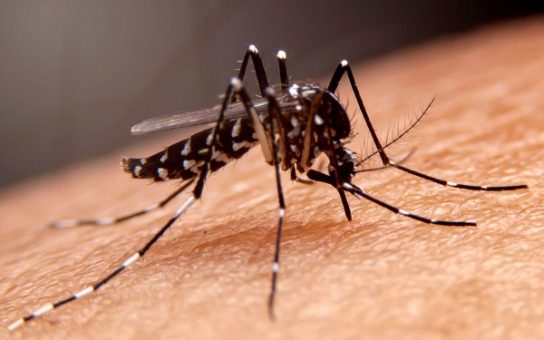Eradicating malaria may remain an elusive dream if leaders of government continue to sideline the country’s health care system, while depending on foreign medical treatment, health campaigners warned yesterday.
This is as the world marks World Malaria Day 2025 with the theme: “Malaria Ends With Us: Reinvest, Reimagine, Reignite”.
The advocates called for renewed commitment, increased domestic investment and urgent reforms in Nigeria’s health infrastructure to truly combat the deadly disease.
In a statement yesterday, Francis Nwapa, convener of the #EndMalariaInNigeria campaign, said Nigeria must stop depending on foreign aid and instead focus on strengthening its own health infrastructure.
“We need to stop relying on aid that has not truly helped us reduce malaria deaths. Nigeria must take ownership of the fight and begin to invest in our hospitals, labs and environmental health systems,” Nwapa said.
His comments came amid concerns over the impact of the recent withdrawal of malaria funding to African countries by the United States.
Nwapa believed the funding was not effectively used in Nigeria, accusing government officials of diverting resources meant to combat the disease.
The group pointed to the collapse of local efforts like the Nigerian Vaccine Production Centre in Yaba, Lagos, which was once a major producer of vaccines for diseases such as smallpox and yellow fever between 1940 and 1991. Today, the facility lies in ruins.
“That centre could have played a major role in producing malaria vaccines today. But it was abandoned. It shows how we’ve failed to build on our own successes,” Nwapa said.
According to the statement, past international projects such as the Roll Back Malaria programme, which involved the World Bank, UNICEF, UNDP, and WHO, did not significantly lower Nigeria’s malaria death rate despite large financial investments.
However, the #EndMalariaInNigeria campaign questioned the effectiveness of the council, criticising the absence of environmental health experts in the team.
“It feels more like a business project than a real health intervention,” Nwapa said. “Where are the professionals who understand mosquito control and public health?”
The World Health Organisation has noted that children from the poorest households in sub-Saharan Africa are five times more likely to contract malaria than those from wealthier homes. In Nigeria, worsening poverty is making it harder for families to access health care and live in clean environments.
Nwapa believes government should prioritise proper housing, constant electricity, and better waste management as part of its malaria control strategy.
“Simple things like good drainage, clean water, and power supply can stop mosquitoes from breeding. We must build modern systems to support healthy living,” he said.
Despite being one of the most malaria-endemic countries in the world, Nigeria still records over 100 million cases of malaria every year, contributing to 30 per cent of childhood deaths, 25 per cent of deaths in babies under one year old, and 11 per cent of maternal deaths annually.
In contrast, African countries like Mauritius, Algeria, Egypt and most recently Cape Verde, have been declared malaria-free by the WHO after recording no local cases for at least three years.
Nwapa concluded by calling on the government to declare a public health emergency on malaria and take full responsibility for protecting its citizens.
“Until our leaders stop flying abroad for treatment and start fixing our health system here at home, Nigerians will continue to die needlessly from a preventable disease,” he said.









































Discussion about this post